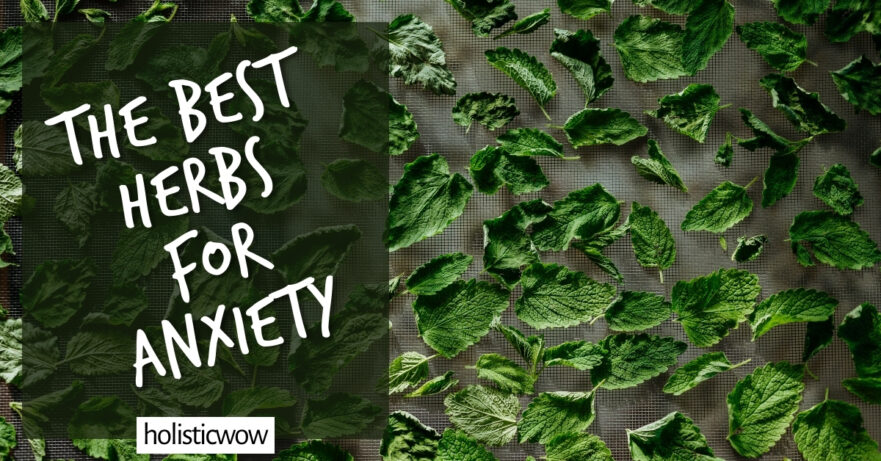In this article about herbs for anxiety:
🌿 Herbal Wisdom to Quiet the Mind | 🍵 Herbal Preparations | ☯️ Integrating Harmony into Everyday Life | 🌱 Navigating Herbs Safely
In a world that never slows down, it feels like anxiety tags along with us more often than we’d like.
But nature has some old-school secrets up its sleeve. We’re talking herbs like chamomile and lemon balm—nature’s way of helping us hit the pause button.
These aren’t new trends; they’re time-tested companions that remind us how to find our calm amidst the chaos.
They bring a piece of nature’s tranquility into our daily hustle, showing us that sometimes, the best way to move forward is to take a moment to breathe and let go.
Ready to see how these natural helpers can make a difference?
Key Takeaways
- ⚖️ Find balance: Integrate time-tested herbs like chamomile and lavender into your daily rituals for tranquil moments amid life’s hustle and bustle.
- 🧘 Deepen tranquility: Enhance your calm by incorporating herbs like skullcap, passionflower, and motherwort into your herbal preparations, alongside chamomile and lemon balm tea. This will foster holistic well-being and inner peace.
- 🕊️ Fortify your peace: Combine herbal remedies with mindfulness techniques, such as deep breathing and gentle movement, to foster resilience and manage anxiety effectively.
🌿 Nature’s Tranquility: Harnessing Herbal Wisdom to Quiet the Mind
Finding ways to ease anxiety is key for many of us. This is where the power of herbs comes in handy.
We will look at how certain herbs, like chamomile and lemon balm, have been used for ages to help people relax and feel better. These herbs are not just traditional; they’re backed by the experiences of many who’ve found a bit of calm in their hectic days.
Each herb brings unique benefits, from the soothing chamomile to the calming lavender. Whether it’s reducing stress, enhancing sleep, or improving mood, these plants provide practical, holistic ways to address anxiety symptoms, guiding us toward a more tranquil state of being.
Today, we’re talking about a handful of herbs known for their relaxation properties: chamomile, lavender, lemon balm, skullcap, tilia, passionflower and motherwort. These plants have been used for centuries for anxiety relief.
Chamomile
Beyond its protective layer, marshmallow root hydrates and softens the mucous membranes, making it easier to deal with dry, scratchy throats. For a thorough, soothing effect, steep the root in cold water for several hours to fully draw out the mucilage, and then drink this infusion throughout the day.
Lavender
Lavender, famous for its soothing scent, has always been used for relaxation and cleansing both the body and spirit. Modern studies, including carefully designed experiments, have shown that it can uplift mood and help reduce feelings of anxiety. These benefits are similar to those from common anxiety medications, but without making you feel drowsy.
Lemon Balm
Lemon Balm, valued since the Middle Ages for its uplifting qualities, continues to be recognized for its positive impact on mood and mental clarity. Its gentle sedation, supported by current pharmacological studies, underscores its historical role in promoting well-being and tranquility, possibly through its action on the GABA system, which is involved in modulating stress and anxiety.
Skullcap
Skullcap has roots in Native American herbalism, where it was prized for its soothing properties. Modern phytotherapeutic research underscores the wisdom of these traditional herbal practices, revealing their potential benefits for stress and anxiety relief through the modulation of neurotransmitter activity. It offers a bridge between past and present remedies.
Passionflower
Passionflower was traditionally used in the Americas for its soothing qualities. Its contemporary use for anxiety and sleep improvements is backed by clinical evidence, reflecting this heritage. It’s considered particularly beneficial for individuals with mild to moderate anxiety, offering a time-honored solution to modern-day stressors, likely through its influence on the GABA system, a part of the brain that helps control feelings of nervousness and tension.
Motherwort
Motherwort has been recognized in Europe and Asia for centuries for supporting heart health and emotional balance. Its use in contemporary herbalism as a remedy for anxiety and nervous tension is reflected in its long-standing application in herbal traditions. Recent studies show that it can help protect the heart and reduce anxiety because of its natural compounds, known as iridoid glycosides and flavonoids.
These natural allies offer more than just a momentary pause from anxiety; they provide real, tangible methods to weave serenity into the fabric of our lives.
Whether through a steaming cup of herbal tea, the aromatic bliss of lavender, or the calming presence of passionflower, nature offers a path to tranquility that aligns with our body’s innate rhythms, inviting us to reclaim a sense of peace in our everyday lives.
Crafting Calm: Herbal Preparations
Exploring herbs’ healing potential is both an art and a science. Crafting the perfect blend can transform stressful moments into peaceful respites.
Here, we share precise recipes for herbal teas and blends carefully crafted from chamomile, lemon balm, and other featured herbs. These remedies are straightforward yet powerful, providing comforting relief and highlighting each herb’s versatility.
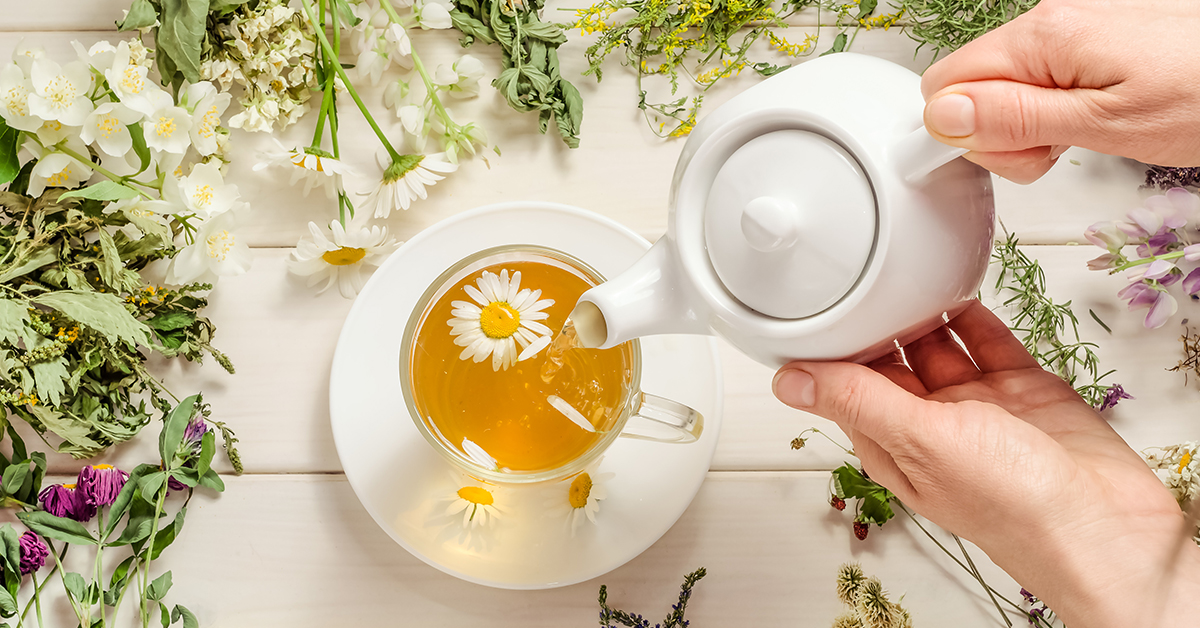
Chamomile Tea
Ingredients:
- 2 teaspoons of dried chamomile flowers,
- 1 cup of boiling water.
Preparation:
- Place chamomile flowers in a teapot or cup.
- Pour boiling water over the flowers and cover.
- Let it steep for 10 minutes.
- Strain and enjoy.
Optional: Add honey or lemon to taste. Drink 2-3 times daily. This tea is perfect for relaxing before bedtime or whenever you need to calm down.
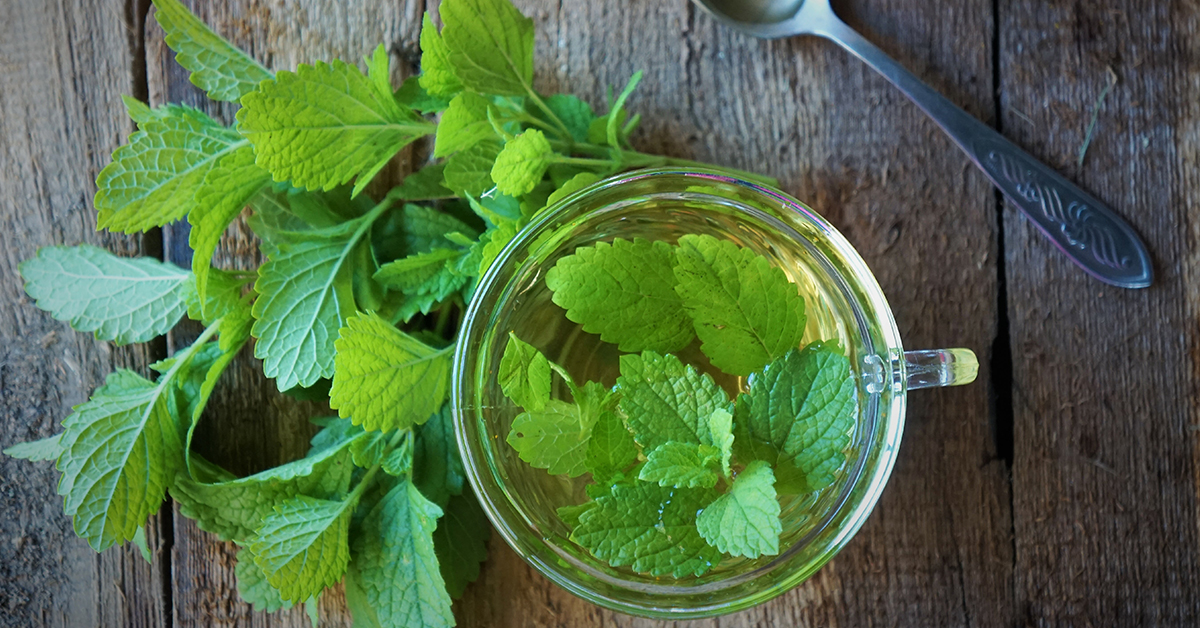
Lemon Balm Tea
Ingredients:
- 1½ teaspoons of dried lemon balm leaves,
- 1 cup of boiling water.
Preparation:
- Add lemon balm leaves to a cup or teapot.
- Cover with boiling water and let it steep for about 10 minutes.
- Strain the leaves out and serve.
For a sweeter sip, mix in a bit of honey. Drink this uplifting tea 2-3 times daily anytime you need a mood boost.
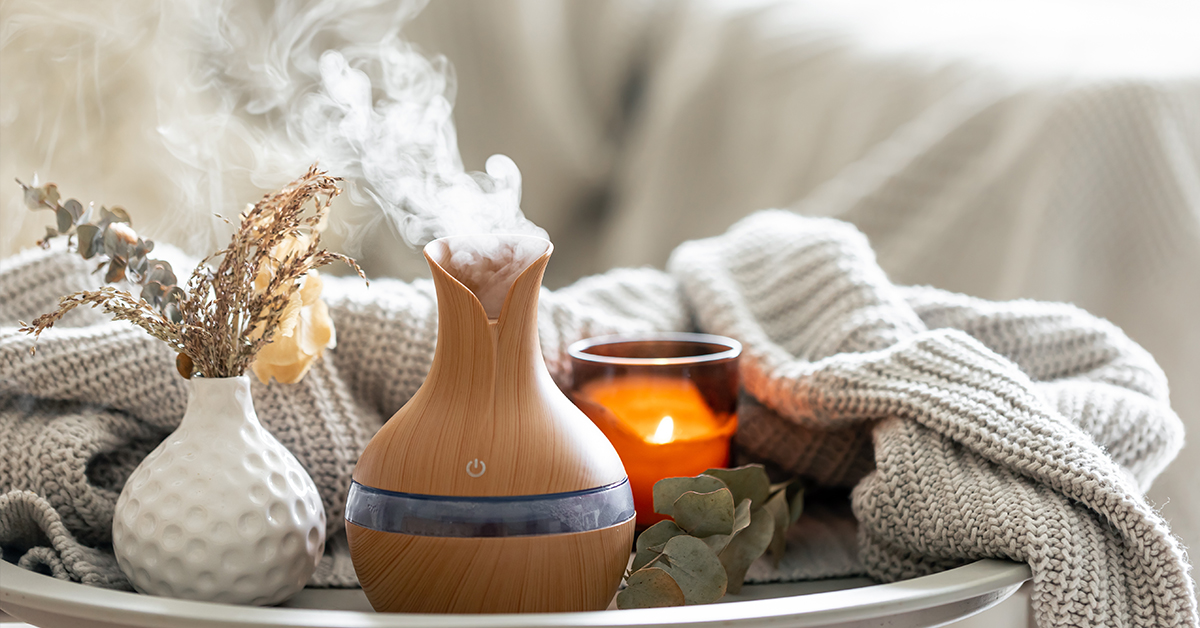
Lavender Oil Diffusion
Add a few drops of lavender essential oil to a diffuser filled with water. Let the calming aroma fill your space, especially in the evening, to create a relaxing environment that eases anxiety.
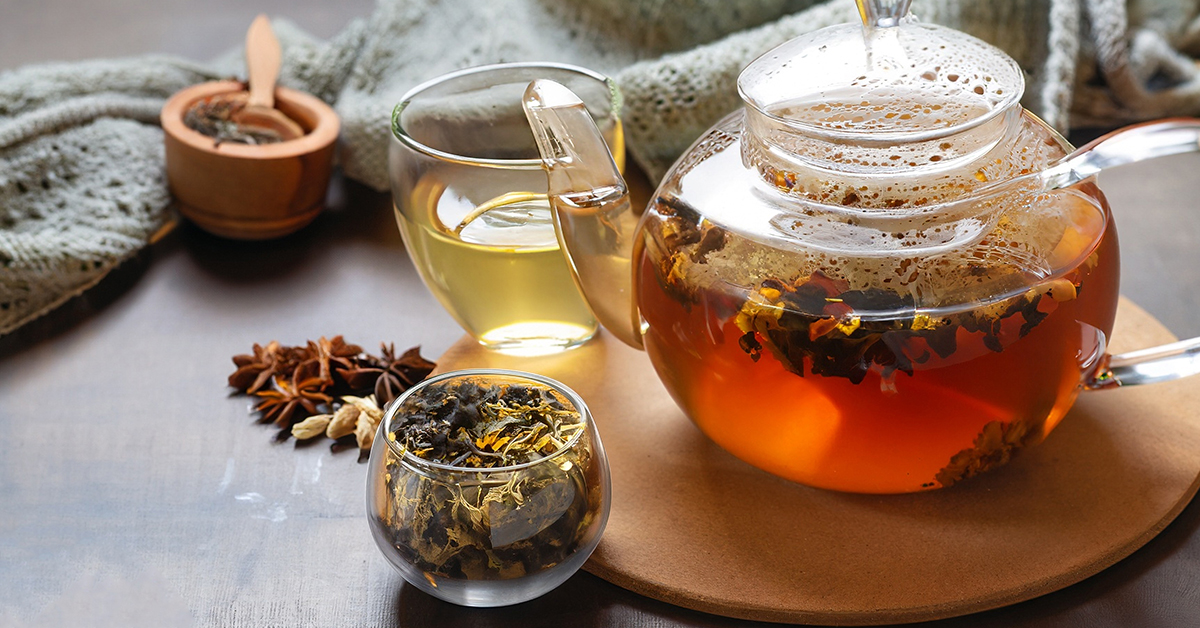
Gentle Herbal Tea Blend
Ingredients:
- 1 teaspoon of dried chamomile flowers,
- ½ teaspoon of dried lemon balm leaves,
- ½ teaspoon of dried tilia (linden flower),
- A pinch of dried lavender flowers (optional),
- 1 cup of boiling water,
- Honey or lemon (optional).
Preparation:
- Combine the chamomile, lemon balm, tilia, and lavender (if using) in a mug.
- Add boiling water and allow the mixture to steep for 10-15 minutes.
- Strain the tea into another cup.
- Add honey or lemon to taste if desired.
Enjoy 2-3 cups throughout the day. This blend is wonderfully soothing and perfect for gentle relaxation.
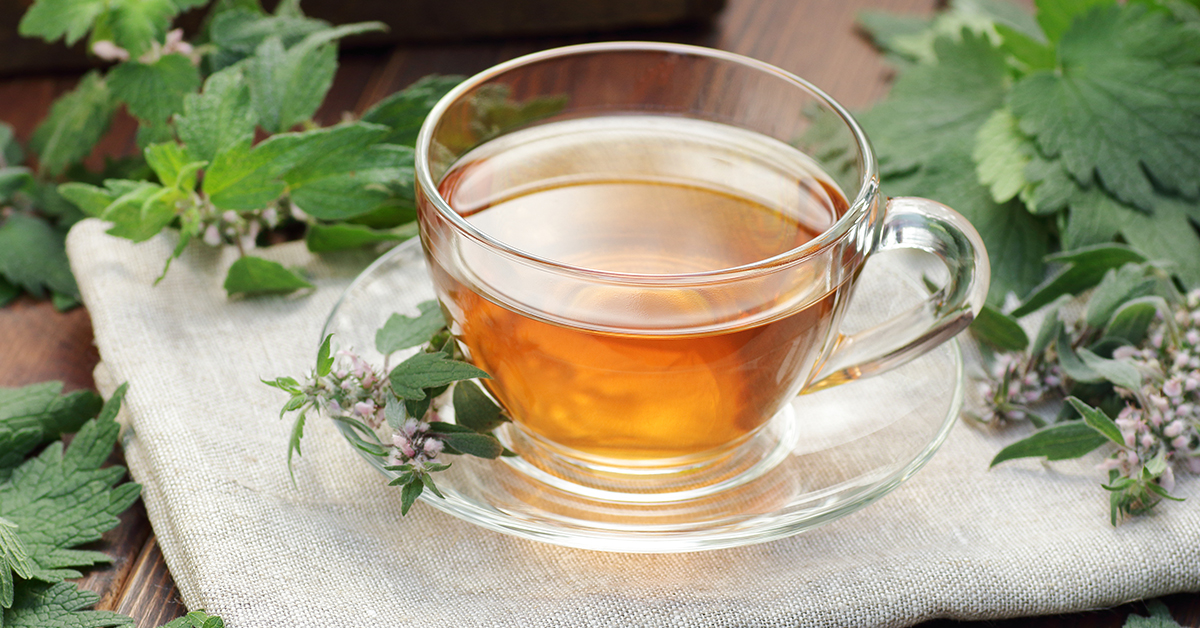
Stronger Herbal Tea Blend
Ingredients:
- 1 teaspoon of dried chamomile flowers,
- ½ teaspoon of dried skullcap leaves,
- ½ teaspoon of dried motherwort,
- ¼ teaspoon of dried passionflower,
- ¼ teaspoon of dried lemon balm leaves,
- 1 cup of boiling water
- Honey to taste (optional).
Preparation:
- Mix the lemon balm, chamomile, skullcap, passionflower, and motherwort in a cup.
- Pour boiling water over them and let everything steep for 10-15 minutes.
- After straining, you may sweeten the tea with honey to your liking.
This potent combination offers stronger support for those times when stress and anxiety are particularly challenging.
Use 1-2 cups in the evening, especially if using it to relax or aid sleep. Adjust the frequency according to your body’s response, and if you have specific health concerns, consult with a healthcare professional beforehand.
Integrating Harmony into Everyday Life
Integrating herbs’ calming influence into your everyday life is like adding a soothing balm to the chaos of modern living.
Whether you’re looking to address anxiety preemptively or seeking relief from its grip, these herbs offer practical solutions that fit seamlessly into your daily routine.
Daily Herbal Integration for Anxiety Relief
- 🫖 Morning herbal ritual: Kickstart your day with a comforting cup of chamomile or lemon balm tea. These herbal elixirs awaken your senses and gently nudge you toward a calmer mindset, setting a positive tone for the day ahead.
- 🧘♀️ Midday mindfulness moment: Take a brief break from your busy schedule to indulge in a calming lavender oil diffusion. A few drops in a diffuser can fill your space with its serene aroma, offering respite amidst the hustle and bustle.
- 🌒 Evening wind-down routine: Wind down from the day’s stresses with a relaxing herbal tea blend. Combine the ingredients of our Gentle Herbal Tea Blend or Stronger Herbal Tea Blend to enjoy a soothing concoction that prepares your mind and body for restorative sleep.
Complementary Practices to Enhance Herbal Benefits
- 🌬 Practice deep breathing: Incorporate deep breathing exercises into your daily routine to promote relaxation and reduce stress. Taking slow, deep breaths can help calm your nervous system and enhance the effects of herbal remedies.
- 🚶 Mindful movement Engage in gentle exercises like yoga or tai chi to promote relaxation and mindfulness. These practices alleviate physical tension and cultivate inner peace, complementing the calming effects of herbal remedies.
- 🥦 Healthy lifestyle habits: Prioritize a balanced diet, regular exercise, and adequate sleep to support overall well-being. A healthy lifestyle forms the foundation for managing anxiety effectively and amplifies the benefits of herbal interventions.
- 🌳 Connect with nature:: Spend time outdoors and connect with the natural world. Whether a leisurely walk in the park or tending to a garden, immersing yourself in nature can reduce stress levels and enhance your sense of calm.
By incorporating these herbs and practices into your daily life, you empower yourself to navigate the ups and downs of anxiety with grace and resilience.
🌱 Navigating Herbs Safely
Begin by administering small doses and carefully monitor how your body reacts. Adjust the dosage as necessary to achieve the best results while remaining mindful of any adverse reactions that may arise.
While many herbs are generally safe for consumption, it’s important to recognize that individual responses can vary significantly. If you experience any undesirable effects, it’s wise to pause and reassess your approach to herbal treatment.
Moreover, it’s essential to consider potential interactions between herbal remedies and any prescription medications you may be taking. Consulting with a healthcare provider or herbalist before incorporating new herbs into your regimen ensures that you receive personalized guidance tailored to your specific health needs, especially if you are pregnant, nursing, or have existing health conditions.
By prioritizing safety and seeking professional advice when necessary, you can confidently integrate herbal remedies into your wellness routine while minimizing potential risks and maximizing benefits.
We’ve explored the calming potential of chamomile, lavender, lemon balm, skullcap, tilia, passionflower, and motherwort. Each herb offers unique benefits, from soothing effects to mood-lifting properties, providing practical ways to combat anxiety and promote well-being.
Incorporate these herbs into your daily rituals, like enjoying a cup of chamomile tea or lemon balm tea, to seamlessly integrate their benefits into your routine. By embracing herbal remedies, you proactively nurture your well-being, fostering resilience and inner peace.
FAQ
Are herbal remedies safe for addressing anxiety?
Absolutely. Chamomile, lavender, lemon balm, skullcap, tilia, passionflower, and motherwort have long been valued for their calming effects. While individual responses may vary, these herbs are generally safe for consumption. It's recommended to start with small doses and gradually monitor your body's response. Be mindful of potential interactions with any prescription medications you may be taking. Consult with a healthcare provider or herbalist before incorporating new herbs into your routine, especially if you are pregnant, nursing, or have existing health conditions, to ensure personalized guidance and minimize risks.
How can I integrate herbal remedies for anxiety into my daily life?
Incorporating herbal remedies into your daily routine is easier than you might think. Start your day with a comforting cup of chamomile or lemon balm tea to set a positive tone. Throughout the day, indulge in mindfulness with practices like lavender oil diffusion or deep breathing exercises. Wind down in the evening with a soothing herbal tea blend to prepare your mind and body for restorative sleep. Seamlessly integrating these herbs into your daily rituals empowers you to address anxiety with grace and resilience.
Can herbal remedies complement other anxiety management strategies?
Absolutely. Herbal remedies like chamomile, lavender, and lemon balm can complement anxiety management strategies. Practices like deep breathing exercises, mindful movement, prioritizing a balanced diet, regular exercise, and spending time outdoors can enhance the calming effects of herbal remedies. Incorporating these holistic approaches into your routine creates a comprehensive toolkit for managing anxiety effectively and promoting overall well-being.

